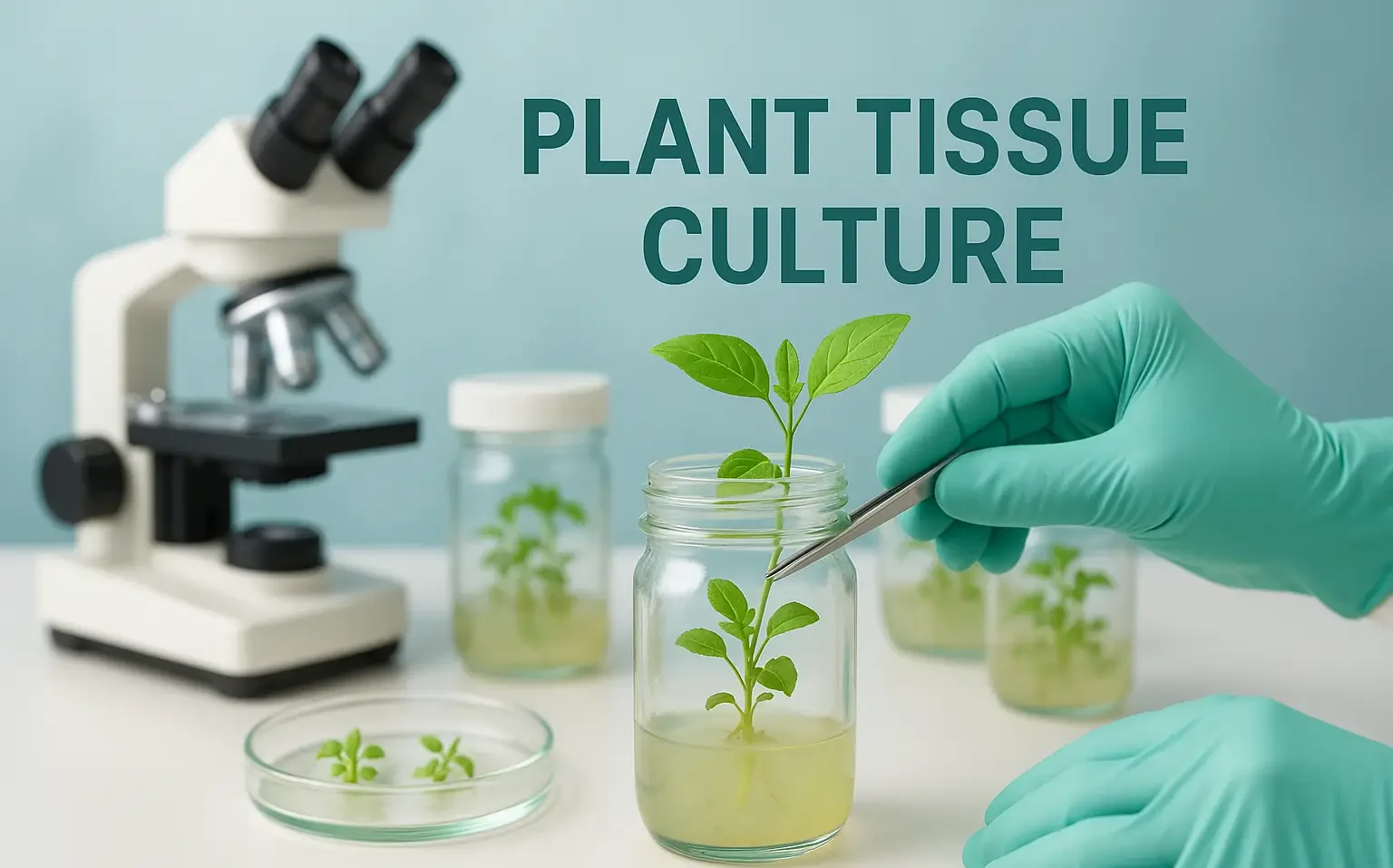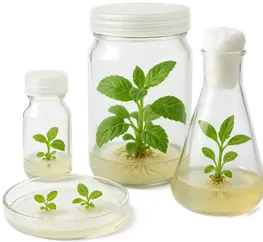What is Plant Tissue Culture?
- Plant Tissue Culture (PTC) is the technique of growing plant cells, tissues, or organs in a sterile, nutrient-rich medium under controlled conditions.
- It is used for micropropagation, genetic modification, conservation, and medicinal compound production.
General Procedure
-
Selection of Explant
- A small plant part (leaf, stem, root, meristem, embryo) is chosen for culture.
-
Sterilization (Aseptic Conditions)
- Explants are cleaned and sterilized using ethanol, mercuric chloride (HgCl₂), or sodium hypochlorite (NaOCl) to remove microbes.
- This process is performed in a laminar airflow chamber to prevent contamination.
-
Preparation of Culture Media
-
Inoculation
- Explants are placed onto the sterile medium in Petri dishes or test tubes.
-
Incubation
- Cultures are maintained at:
- Temperature: 22-27°C
- Light cycle: 16-hour light/8-hour dark
- Humidity: 50-60
- Cells grow into callus, shoots, or roots.
Advertisements
- Cultures are maintained at:
-
Subculturing
- Tissues are transferred to fresh media every 2-4 weeks to maintain growth.
Advertisements -
Regeneration and Rooting
- Shoots and roots develop using cytokinins (for shoot formation) and auxins (for root formation).
-
Acclimatization (Hardening)
- Plantlets are moved to a greenhouse or soil for adaptation to external conditions.
Advertisements -
Transfer to Field
- Fully grown plants are transplanted into the natural environment.
Click Here to Watch the Best Pharma Videos


